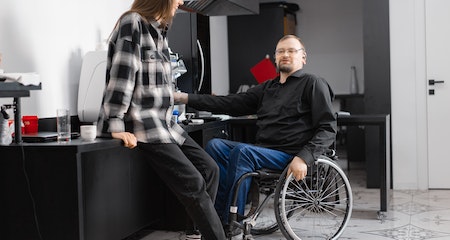Whether you are caring for someone with a disability, or you work with people with disabilities in your community, it is important to be knowledgeable about care options. Here are some tips to help you provide the best care possible.
Many barriers exist for health care providers when it comes to caring for patients with disabilities. These include inadequate training, lack of awareness, and a lack of knowledge about the specific needs of persons with disabilities.
Physical Care
Physical care for disabled people includes helping them get around and ensuring that they have equipment and support to help them stay healthy. This can include help with mobility, eating, breathing, toileting and staying hydrated.
Many people with disabilities also have mental health problems. These can be difficult to manage, especially if your disability is affecting your physical health.
People with a physical disability can experience mental distress 5 times more often than they would without one. So it’s important to be able to talk to someone if your mental health is affecting your daily life.
Young adults with disabilities are more likely than young adults without to use last-resort health care. These include emergency departments and hospital wards, as well as admissions to mental health facilities.
Mental Care
Good mental health is important, regardless of whether you are a person with a disability or a loved one. It is the foundation of good mental health. It promotes positive mood and thought, helps you cope with stress, illness, and maintains strong relationships.
Many people with disabilities are denied the mental health care they need. Barriers include lack of transportation and communication, poverty, insurance coverage issues and physician-to-patient ratios.
There are many treatments for mental illness, including medication and psychotherapy. Brain-stimulation therapies such as electroconvulsive therapy (ECT), repetitive magnetic stimulation, deep brain stimulation, vagus nerve stimulation and deep brain stimulation can also be used. If you suspect that you might have a mental disorder, it is important to seek professional assistance immediately.
Integrated primary healthcare services, which provide mental healthcare in the same manner as physical healthcare, reduce stigma and make it easier to get treatment for people with mental disorders. In addition, they help reduce the burden on individuals, their families and society as a whole by reducing the need for admission to psychiatric institutions.
Social Care
People with disabilities need social care to help them live a full and independent life. This could include assistance from a personal aide or advice on how to get work.
Social workers for the disabled can assist their clients by assessing and tailoring services to their needs. They can assist with communication and transportation issues, as well as finding employment and accommodation.
They work in a variety of settings, including mental health clinics, hospitals, child welfare agencies and private practice. This field typically requires a bachelor’s degree (BSW).
They often work with children with disability support Melbourne , educating parents about their legal rights and helping them locate the services that will allow their disabled children to lead as independent a life as possible. They may be involved in the creation of an Individualized Education Plan (IEP), which details the educational goals and special services that the school will provide for the child with disabilities.
Emotional Care
Getting help with the practical issues of living with a disability is important, but kids with disabilities often also need emotional support and understanding. Navigating life with a disability can be a tough road for some, and experts believe it can make them more likely to develop depression.
A range of emotions are experienced by disabled people when they first discover they have a disability. This includes shock, denial, anger/depression, and adjustment/acceptance.
In the final stage, adjustment/acceptance, individuals accept that their disability is a part of who they are and begin to adjust to their new circumstances. This could include learning to adapt to their limitations and changing their lifestyle or even moving into a new house with modifications.
Siblings of children with disabilities can also feel a strong sense of responsibility for their disabled sister or brother. This is especially true for siblings who are close in age.


